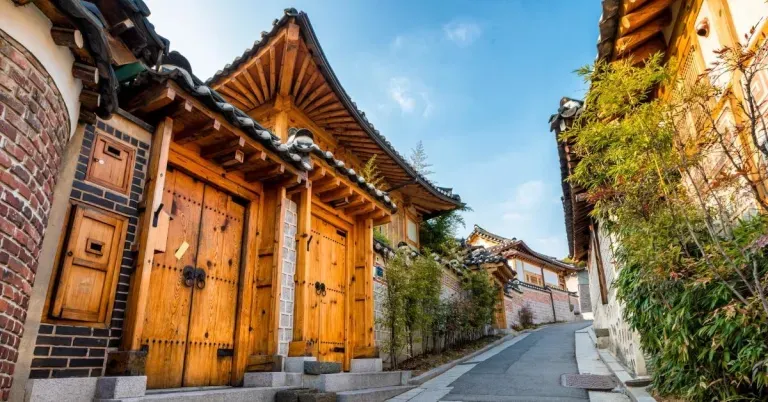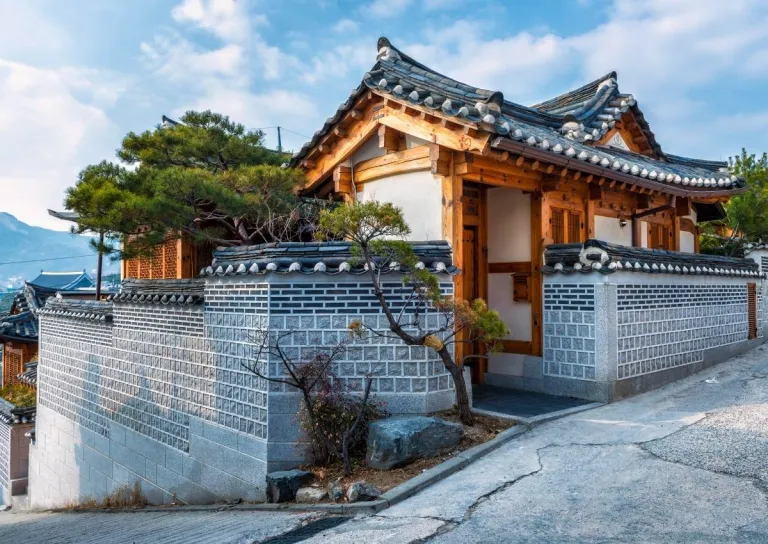Our favourite places to stay on this sleepy Cebu island.
Bukchon Hanok Village Tourist Curfew: What Visitors Need to Know

Bukchon Hanok Village, a picturesque neighbourhood in Seoul dating back to the Joseon Dynasty, has become a popular tourist destination, drawing millions each year with its narrow alleyways, traditional homes, and views of the Seoul skyline. However, in response to a rising number of visitor complaints, local authorities are set to enforce a nighttime curfew to ease disturbances affecting local residents.
Also read: New Nationwide South Korea Mail-In Visa Application
What travellers need to know about the proposed Bukchon Hanok Village tourist curfew

Starting with a trial in November and fully implemented in March, tourists will be prohibited from entering certain areas of Bukchon from 5pm to 10am, and anyone caught violating the curfew will be fined up to ₱4,207. The curfew will apply across a 34,000-square-metre zone—roughly the size of five soccer fields. The aim is to protect the quality of life for Bukchon’s residents, whose numbers have fallen significantly due to the area’s increasing popularity as a tourist destination. While Bukchon is home to around 6,100 people, it hosted nearly 6 million tourists last year, sparking concerns about noise, littering, and the loss of privacy for those who call Bukchon home.
Some tourists have caused disruptions, with a few caught attempting to enter private homes or looking through windows. This behaviour has led many residents to consider moving out. Kwon Young-doo, a longtime resident and gallery owner, says he is uncertain about the curfew’s impact, fearing it may leave tourists with a negative impression of South Korea, while others worry that exemptions and enforcement challenges will weaken its impact. Currently, tourists who stay overnight in hanok accommodations are exempt from the curfew, creating loopholes for certain visitors.
In recent years, a surge of traditional Korean house (hanok) stays has further increased foot traffic. By 2024, Bukchon had 116 hanok accommodations compared to only 10 in 2010. This increase is partly driven by property owners leasing homes to hospitality companies, which helps maintain the ageing structures but has contributed to increased noise, waste, and crowding in residential zones. For locals like Kim Eun-mee, who lives next to a hanok stay, disturbances from large gatherings and the constant movement of luggage often disrupt her daily routine.
Also read: South Korean Visa Online Reservation: Book Your Slot in Advance
The move to introduce the curfew has received mixed reactions. While some tourists agree that measures are necessary to protect residents’ quality of life, others feel the fines for walking through public spaces may hinder their experience. Enforcement challenges remain, with questions about how to differentiate tourists from residents and handle language barriers with international visitors.
As Bukchon’s popularity grows, the success of this curfew will play a key role in balancing local life with the demands of tourism.
Featured image credit: Vincent_St_Thomas via Canva Pro
Published at
About Author
Anne Mercado
Subscribe our Newsletter
Get our weekly tips and travel news!
Recommended Articles
10 Bantayan Island Resorts, Hotels, and Rentals for Your Tropical Escape 10 Best Mountain Cafes in the Philippines for Your Peak Coffee Experience Coffee date on the mountains, anyone?
10 Family Outing Ideas in Metro Manila Under ₱500 Looking for a weekend bonding with the family under ₱500? Head to these places, pronto!
10 Long Weekends in the Philippines in 2023 Book those flights ASAP.
Top 10 Post-Breakup Destinations for Healing and Self-Rediscovery Ready for a solo travel?
Latest Articles
Pope Francis Dies at 88 After Illness Remembering his travels and legacy
Mother’s Wonderland: Quezon Province’s Fantasy Theme Park Explore a magical theme park in Tayabas filled with nature, art, and fantasy
Kayangan Lake in Coron, Palawan: Everything You Need to Know Dive into the crystal-clear magic of Kayangan Lake, the crown jewel of Coron, Palawan!
Dingalan Travel Guide: Nature Spots to Discover Now Underrated coastal gem in Aurora
What to Eat in Bicol: Iconic Dishes and Treats, and Unique Pasalubong You’ll Love Spice up your foodie adventure with iconic Bicol dishes and must-try pasalubong!

